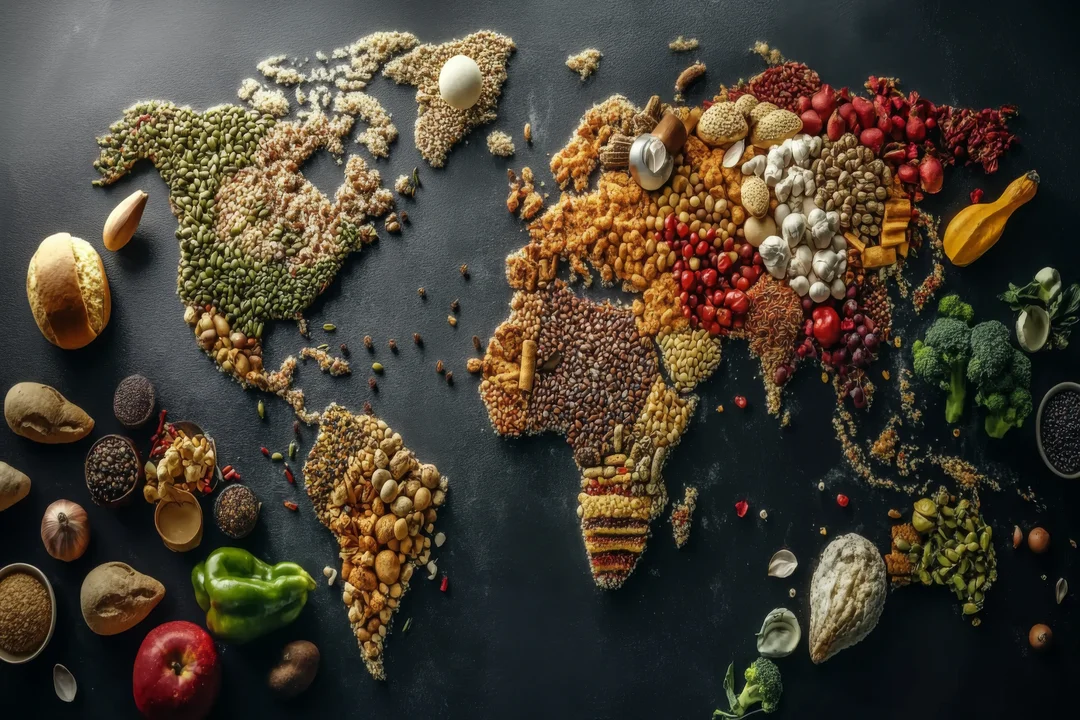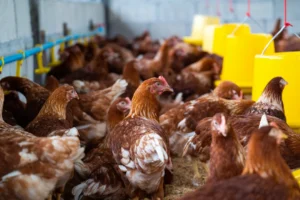The global food trade is evolving rapidly, driven by technological advancements, shifting consumer preferences, and new challenges in logistics and sustainability. For companies involved in food exports, like Sax Trading LLC, staying ahead of these trends is crucial to maintaining a competitive edge in an increasingly dynamic market.
As 2024 approaches, several key trends are shaping the industry, presenting both opportunities and challenges. In this blog, we’ll explore what exporters can expect and how they can adapt to meet the demands of this changing landscape.
The rise of tech-driven food exports
Technology is revolutionizing the global food trade, offering innovative solutions to long-standing challenges.
1. Blockchain for transparency
Consumers and importers demand transparency now more than ever. Blockchain technology is being widely adopted to trace the journey of food products from farm to table. This not only builds trust but also ensures compliance with regulatory requirements.
- Sax Trading’s approach: By integrating blockchain into its supply chain, Sax Trading can provide detailed, verifiable records of product origins, enhancing credibility and customer confidence.
2. AI for demand forecasting
Artificial intelligence is enabling exporters to predict demand with greater accuracy, helping reduce waste and optimize inventory management. For example, AI tools analyze historical data and market trends to anticipate shifts in consumer behavior.
Sustainability takes center stage
Sustainability continues to dominate as a priority in the food export industry. In 2024, expect to see:
1. Increased focus on carbon neutrality
Importing nations are setting stricter environmental guidelines, with carbon-neutral certifications becoming essential for market entry. Exporters are adopting renewable energy in production and transportation to meet these requirements.
- Sax Trading’s initiatives: The company is working to minimize its carbon footprint by investing in energy-efficient logistics and partnering with eco-conscious suppliers.
2. Water and resource efficiency
As climate change impacts water availability, exporters are prioritizing partnerships with producers who use water-efficient farming methods. These measures ensure the long-term sustainability of crops.
Consumer trends shaping demand
Global consumers are shaping the future of food exports by demanding specific products and production practices.
1. Plant-based and alternative proteins
The plant-based food market is booming, with consumers seeking healthier and more sustainable protein options. Countries like the U.S. and Germany are leading this demand, creating opportunities for exporters specializing in alternative proteins.
2. Organic and natural products
Organic food continues to grow in popularity, with consumers willing to pay a premium for products free from pesticides and synthetic additives. Exporters who can certify their goods as organic will have a distinct advantage.
3. Culturally diverse food products
As global migration patterns shift, there’s rising demand for culturally specific food products. Exporters that diversify their offerings to cater to these tastes can tap into lucrative niche markets.
- Sax Trading’s response: With a broad portfolio including rice, sugar, coffee, eggs, chicken, and cooking oil, Sax Trading is well-positioned to cater to a variety of cultural preferences worldwide.
Geopolitical and economic factors
1. Trade agreements and tariffs
The shifting political landscape continues to influence trade. Exporters must navigate changing tariffs and trade agreements that can impact market access and profitability.
2. Economic growth in emerging markets
Emerging economies in Africa and Asia are becoming significant importers of food products as their middle classes grow. These regions present new opportunities for exporters willing to adapt their strategies to meet local preferences and price points.
Logistics innovations
Transportation and logistics are critical to the success of food exports. In 2024, expect the following innovations to shape the industry:
1. Smart packaging
Technology-driven packaging can monitor food quality, ensuring products remain fresh during transit. This reduces waste and improves customer satisfaction.
2. Cold chain advancements
Improvements in cold chain logistics are enabling exporters to deliver perishable goods more efficiently, opening up new markets for fresh and frozen products.
- Sax Trading’s logistics edge: With a focus on efficiency, Sax Trading uses advanced cold chain solutions to maintain the quality of its exports.
How Sax Trading is preparing for 2024
Sax Trading LLC is at the forefront of the global food trade, continuously evolving to stay ahead of industry trends. By leveraging its diverse product portfolio, technological advancements, and commitment to sustainability, the company is well-equipped to navigate the challenges and opportunities of 2024.
Key strategies for success:
- Investing in technology: From blockchain to AI, Sax Trading is embracing tools that enhance transparency and efficiency.
- Expanding its market reach: By targeting emerging economies and diversifying its offerings, Sax Trading is tapping into new growth opportunities.
- Prioritizing sustainability: By aligning with global environmental standards, Sax Trading ensures long-term viability in the competitive export market.
The global food export industry in 2024 will be defined by technological innovation, sustainability, and evolving consumer demands. Exporters who embrace these changes will not only thrive but also play a pivotal role in shaping the future of global trade.
For Sax Trading LLC, the coming year represents an exciting opportunity to strengthen its leadership in the market, deliver value to its customers, and contribute to a more sustainable world.








